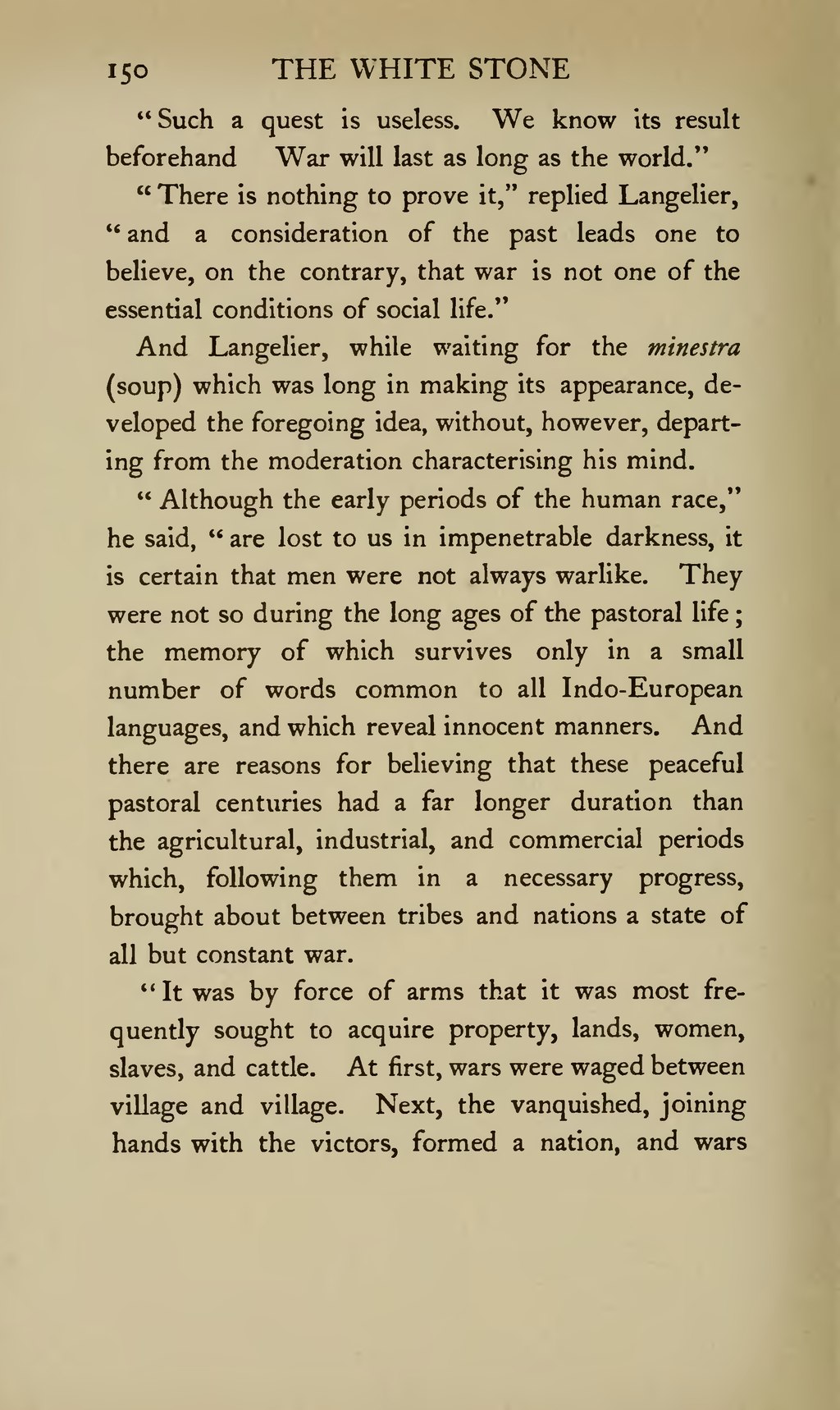"Such a quest is useless. We know its result beforehand. War will last as long as the world."
"There is nothing to prove it," replied Langelier, "and a consideration of the past leads one to believe, on the contrary, that war is not one of the essential conditions of social life."
And Langelier, while waiting for the minestra (soup) which was long in making its appearance, developed the foregoing idea, without, however, departing from the moderation characterising his mind.
"Although the early periods of the human race," he said, "are lost to us in impenetrable darkness, it is certain that men were not always warlike. They were not so during the long ages of the pastoral life; the memory of which survives only in a small number of words common to all Indo-European languages, and which reveal innocent manners. And there are reasons for believing that these peaceful pastoral centuries had a far longer duration than the agricultural, industrial, and commercial periods which, following them in a necessary progress, brought about between tribes and nations a state of all but constant war.
"It was by force of arms that it was most frequently sought to acquire property, lands, women, slaves, and cattle. At first, wars were waged between village and village. Next, the vanquished, joining hands with the victors, formed a nation, and wars
